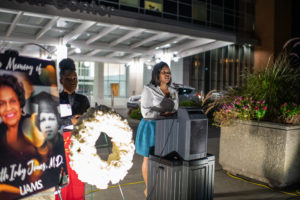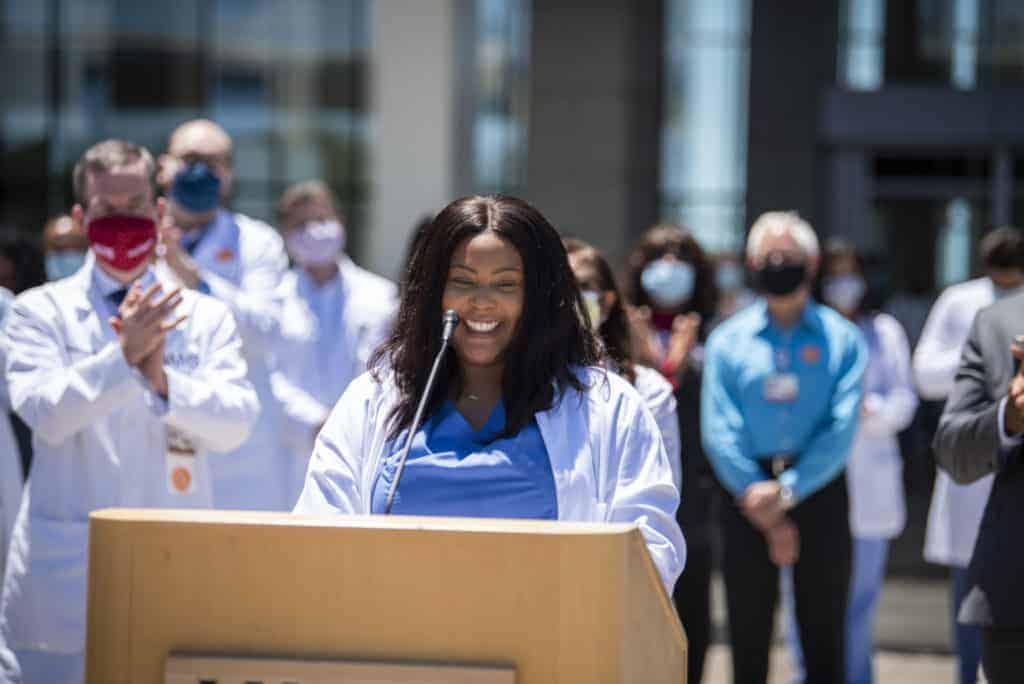Student Town Hall Addresses Diversity in UAMS College of Medicine
| Administrators for UAMS and the College of Medicine met with minority medical students July 7 in a town hall to discuss steps the university can take to reinforce a diverse atmosphere within the college and throughout the institution.
The meeting came following national protests against systemic racism in this country, ongoing since late May, and in response to a petition signed by more than 150 students requesting action.
“Students talked about their experiences and how the culture here can make them feel,” said Natasha Thompson, current president of the UAMS Dr. Edith Irby Jones chapter of the Student National Medical Association and an organizer of the meeting.

Medical student Paige Jones speaks during a 2019 candlelight vigil organized in honor of the late Edith Irby Jones, M.D.
“Black students felt their voices were not being heard and decisions were being made without their presence,” said Paige Jones, another student organizer.
Among the issues, students noted they want a stronger commitment of recruitment and admission of minority students. Of 174 incoming medical students, only seven are Black.
Advising was another point of student discussion.
“As a black female student from a rural setting, it would be hard to connect with a white man who has been a doctor here for 20 years,” said Jones. “It’s hard to know something when you have no frame of reference in lived experience. That’s why I think conversations like this are so important.”
Administrators at the town hall included UAMS Chancellor Cam Patterson, M.D., MBA; Stephanie Gardner, Pharm.D., Ed.D., senior vice chancellor for academic affairs, provost and chief strategy officer; Christopher T. Westfall, M.D., dean of the College of Medicine; and Brian Gittens, Ed.D., vice chancellor for diversity, equity and inclusion.
“I think the reason it worked so well was that it was an opportunity for students to talk, not something administrators tried to fix with a statement to make us feel better,” said Thompson. “It was a productive conversation with mutual respect, careful listening and without letting emotion take over.
“I think the next thing we do is develop actionable steps,” she continued.
Among those steps is the suggestion to create an associate dean position devoted to diversity issues within the College of Medicine, a goal shared by the Division for Diversity, Equity and Inclusion, which has advocated for the establishment of a diversity officer within each academic unit at the university.
Students also asked for more diversity among faculty advisors.
“It is important that we create an environment in which all voices are heard, because racism and discrimination have no place at UAMS,” said Patterson. “We appreciate these students sharing their experiences and will incorporate their input as we work to make UAMS a welcoming environment that serves all Arkansans, whether patients, students or guests on our campus.”
